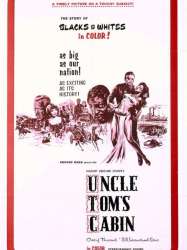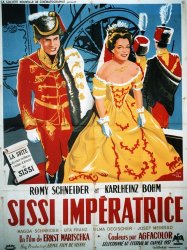Vilma Degischer is a Actor Autrichienne born on 17 november 1911 at Vienna (Austria)

Vilma Degischer (17 November 1911 - 3 May 1992) was an Austrian theatre and film actress. She appeared in more than thirty films from 1931 to 1991. From 1931 to 1991 she played at the Theater in der Josefstadt in Vienna.
Vilma Degischer était, avant tout, une célèbre et très bonne actrice de théâtre.
Elle est née à Vienne le 17 novembre 1911. Après ses études, elle a voulu être danseuse et a intégré le ballet de Grete Gross, Gertrude Bodenwieser et Ellinor Tordis.
Elle a décide ensuite d'assister au Séminaire de Wiener Reinhardt où elle appris à être une bonne actrice. Après ses études, elle a joué dans différents théâtres autrichiens et allemands, notamment à Berlin, Vienne et Salzbourg.
Il est important de mentionner ses débuts à Berlin dans les années 1930 où elle a joué Hermia dans le "Songe d'une Nuit d'Été" de Shakespeare réalisé par Max Reinhardt.
Le premier tournant de sa carrière théâtrale fut l'année 1939 où elle commença à travailler activement au théâtre viennois "Theater in der Josefstadt". Elle y resta longtemps et jusqu'à aujourd'hui son nom y reste attaché. Vilma est devenu une «salondame» et a obtenu un certain nombre de rôles principaux dans les pièces de théâtre. Surtout, il faut mentionner des rôles tels que Helen dans «Der Schwierige», la Generalin dans «Der Walzer der Toreros», l'inoubliable Königin dans «Die Jüdin von Toledo», Marie dans «Das Konzert» ou Mère Carmen dans «Maria Pineda ".
Plus tard, dans les années 1940, Vilma Degischer élargit son répertoire et commence à jouer dans des comédies musicales, des films et même des mini-séries.
La plupart des gens se souviennent probablement de son portrait de la cruelle archiduchesse Sophie dans les trois parties d'Ernst Marischka de «Sissi» (1955, 1956, 1957) avec Romy Schneider et Karlheinz Böhm. Mais elle a obtenu d'autres rôles dans les films, comme Livia Argan dans la belle interprétation cinématographique d'Ernst Marischka de "Der veruntreute Himmel" de Franz Werfel (1958) avec Annie Rosar et Hans Holt, sœur Wilhelmina dans "The Cardinal" d'Otto Preminger (1963) avec Romy Schneider, ou encore M Shelby dans "Uncle Tom's Cabin" (1965).
À la fin de sa vie, on a pu l'admirer dans un rôle mineur de la mini-série "The Strauss Dynasty" (1991) de Marvin J. Chomsky avec Anthony Higgins et Stephen McGann.
Vilma Degischer est décédée le 3 mai 1992 à l'âge de 80 ans. Elle a été mariée à l'acteur Hermann Thimig avec lequel elle a eu deux filles.
Dans sa longue carrière, elle a reçu le «Ehrenkreuz für Wissenschaft und Kunst erster Klasse», la «Kainz Medaille» et le titre de «Kamerschauspielerin».
Elle appréciait l'élégance, la perfection de l'action, les bonnes manières et la culture.
Une grande actrice d'un grand pays.
Source : Wikidata
Vilma Degischer

Birth name Wilhelmine Anna Maria Degischer
Nationality Austria
Birth 17 november 1911 at Vienna (Austria)
Death 3 may 1992 (at 80 years) at Baden bei Wien (Austria)
Nationality Austria
Birth 17 november 1911 at Vienna (Austria)
Death 3 may 1992 (at 80 years) at Baden bei Wien (Austria)
Biography
Elle est connue pour son rôle de l'archiduchesse Sophie dans l'adaptation cinématographique de Sissi.Vilma Degischer était, avant tout, une célèbre et très bonne actrice de théâtre.
Elle est née à Vienne le 17 novembre 1911. Après ses études, elle a voulu être danseuse et a intégré le ballet de Grete Gross, Gertrude Bodenwieser et Ellinor Tordis.
Elle a décide ensuite d'assister au Séminaire de Wiener Reinhardt où elle appris à être une bonne actrice. Après ses études, elle a joué dans différents théâtres autrichiens et allemands, notamment à Berlin, Vienne et Salzbourg.
Il est important de mentionner ses débuts à Berlin dans les années 1930 où elle a joué Hermia dans le "Songe d'une Nuit d'Été" de Shakespeare réalisé par Max Reinhardt.
Le premier tournant de sa carrière théâtrale fut l'année 1939 où elle commença à travailler activement au théâtre viennois "Theater in der Josefstadt". Elle y resta longtemps et jusqu'à aujourd'hui son nom y reste attaché. Vilma est devenu une «salondame» et a obtenu un certain nombre de rôles principaux dans les pièces de théâtre. Surtout, il faut mentionner des rôles tels que Helen dans «Der Schwierige», la Generalin dans «Der Walzer der Toreros», l'inoubliable Königin dans «Die Jüdin von Toledo», Marie dans «Das Konzert» ou Mère Carmen dans «Maria Pineda ".
Plus tard, dans les années 1940, Vilma Degischer élargit son répertoire et commence à jouer dans des comédies musicales, des films et même des mini-séries.
La plupart des gens se souviennent probablement de son portrait de la cruelle archiduchesse Sophie dans les trois parties d'Ernst Marischka de «Sissi» (1955, 1956, 1957) avec Romy Schneider et Karlheinz Böhm. Mais elle a obtenu d'autres rôles dans les films, comme Livia Argan dans la belle interprétation cinématographique d'Ernst Marischka de "Der veruntreute Himmel" de Franz Werfel (1958) avec Annie Rosar et Hans Holt, sœur Wilhelmina dans "The Cardinal" d'Otto Preminger (1963) avec Romy Schneider, ou encore M Shelby dans "Uncle Tom's Cabin" (1965).
À la fin de sa vie, on a pu l'admirer dans un rôle mineur de la mini-série "The Strauss Dynasty" (1991) de Marvin J. Chomsky avec Anthony Higgins et Stephen McGann.
Vilma Degischer est décédée le 3 mai 1992 à l'âge de 80 ans. Elle a été mariée à l'acteur Hermann Thimig avec lequel elle a eu deux filles.
Dans sa longue carrière, elle a reçu le «Ehrenkreuz für Wissenschaft und Kunst erster Klasse», la «Kainz Medaille» et le titre de «Kamerschauspielerin».
Elle appréciait l'élégance, la perfection de l'action, les bonnes manières et la culture.
Une grande actrice d'un grand pays.
Usually with
Filmography of Vilma Degischer (6 films)
Actress

Uncle Tom's Cabin (1965)
, 2h5Directed by Géza von Radványi
Origin France
Genres Drama, Historical
Themes Films about slavery, Films about racism, Films about religion
Actors O.W. Fischer, Mylène Demongeot, Herbert Lom, Eleonora Rossi Drago, John Kitzmiller, Michaela May
Roles Mrs. Shelby
Rating62%





Adaptation européenne du roman-fleuve d’Harriet Beecher Stowe contant la dramatique histoire d’une famille noire déchirée par l’esclavage dans le Sud des États-Unis avant la Guerre de Sécession.

The Cardinal (1963)
, 2h55Directed by Otto Preminger
Origin USA
Genres Drama, War, Historical
Themes Films about religion
Actors Tom Tryon, Raf Vallone, Jill Haworth, John Saxon, Romy Schneider, Carol Lynley
Roles Sœur Wilhelmina
Rating66%





A newly ordained Irish Catholic priest, Stephen Fermoyle (Tom Tryon) returns home to Boston in 1917. He discovers that his parents are upset about daughter Mona (Carol Lynley) having become engaged to marry a Jewish boy, Benny Rampell (John Saxon). Mona seeks Stephen's counsel as a priest.
 , 1h46
, 1h46Directed by Ernst Marischka
Origin Austria
Genres Drama, Comedy-drama, Historical, Romance
Themes Political films, Films about royalty
Actors Romy Schneider, Karlheinz Böhm, Magda Schneider, Gustav Knuth, Josef Meinrad, Uta Franz
Roles Archduchess Sophie
Rating66%





The Austrian empress Elisabeth, nicknamed Sissi, enjoys travelling in Hungary. She welcomes the politically valuable friendship of Count Andrássy, but when he confesses he is in love with her, she returns to Vienna lest the relationship become too intimate. Her time in Hungary is only a temporary relief from the frustrations of court life in Vienna, where dutiful Franz Josef remains at his desk and allows his strict, domineering mother Sophie to interfere in the raising of his daughter with Sissi, Sophie. Sissi decides to return and meets Franz underway who was coming to Hungary to bring her back to Vienna. They decide to take a vacation in Bad Ischl but Sissi falls ill and is diagnosed with possibly fatal tuberculosis. On doctors' orders Franz Josef must allow his mother to remove his daughter from Sissi's keeping. In poor health, deprived of the company of husband and child, Sissi is in danger of losing the will to live as she travels to healthier climates on Madeira and Corfu. Desperately needed psychosomatic therapy appears in the form of her indestructibly positive mother Ludovika, who lovingly nurses Sissi's illness and restores her zest for life by taking her on idyllic walks. Once again Oberst Böckl, the clumsy body-guard whose doting admiration for the empress borders on the improper, provides a comical note, as he does in each part of the trilogy. Finally, Sissi recovers and rejoins her husband on an official visit to Milan and Venice, Austria's remaining possessions in northern Italy. Nationalists have prepared a hostile welcome for the Habsburg sovereigns; the Milanese nobility send their servants, dressed in noble clothing, to a royal command performance at La Scala, at which the orchestra play Verdi's chorus "Va pensiero," and the disguised servants in the audience sing it in protest against Austrian rule. There is a moment of comic relief when, after the opera, Franz Josef and Sissi receive the disguised servants at a formal reception, where the servants are presented to the imperial couple under the names of their aristocratic masters and mistresses. Sissi is aware that she is not meeting the true nobility, but when the real nobles realize their servants were introduced to the emperor and empress, they shriek in despair and panic at the idea that the imperial couple believe the awkward, common servants were really the aristocrats. In Venice, crowds stand in hostile silence at the couple's procession by royal barge on the Grand Canal and as they pass, Italian nationalist flags are defiantly unfurled from behind shuttered windows. But the emotional Italians melt when they witness the openly loving reunion between Sissi and her little daughter on St Mark's Square.

Sissi: The Young Empress (1956)
, 1h47Directed by Ernst Marischka
Origin Austria
Genres Drama, Comedy, Comedy-drama, Romance
Themes Political films, Films about royalty
Actors Romy Schneider, Karlheinz Böhm, Magda Schneider, Gustav Knuth, Josef Meinrad, Vilma Degischer
Roles Archduchess Sophie
Rating66%





Sissi slowly adapts to life as empress of Austria, but her mother-in-law is hard to live with. Archduchess Sophie adheres to the long-established rules protocol and etiquette, and constantly interferes not only with the emperor's government of the empire but in his family life as well. When Sissi's first child is born, the Archduchess Sophie insists on taking away the child to raise her, because she feels Sissi is too young and unqualified to do so. Sophie also feels that Sissi's place is not in the nursery with her baby, but with her husband as the emperor travels around the empire. A scandal threatens to break out when Sissi leaves Vienna and returns to Bavaria to see her parents. She keeps the truth from her mother, but confesses to her father that she cannot live with Archduchess Sophie's constant criticism and tyranny. Franz Joseph follows her and finally convinces her to return to Vienna. This strengthens Sissi's influence with the emperor, and she supports Prince Gyula Andrássy and the cause of the Hungarians for equal standing in the Empire. The movie concludes with her being crowned Queen of the Hungarians in Budapest. (In fact the coronation was not held until 1867, but "Sissi--The Young Empress" brings the event forward in time to make the ceremony appear to be a confirmation of Sissi's improving status as empress.

Sissi (1955)
, 1h42Directed by Ernst Marischka
Origin Austria
Genres Drama, Comedy, Comedy-drama, Romance
Themes Politique, Théâtre, Political films, Films based on plays, Films about royalty
Actors Romy Schneider, Karlheinz Böhm, Magda Schneider, Gustav Knuth, Josef Meinrad, Uta Franz
Roles Archduchess Sophie
Rating70%





Princess Elisabeth, nicknamed "Sissi", is the second oldest daughter of Duke Maximilian Joseph in Bavaria and Princess Ludovika of Bavaria. She is a carefree, impulsive and nature-loving child. She is raised with her seven siblings at the family seat Possenhofen Castle on the shores of Lake Starnberg in Bavaria. She has a happy childhood free of constraints associated with her royal status.

The Great Love (1931)
, 1h16Directed by Otto Preminger
Genres Drama
Actors Attila Hörbiger, Hans Olden, Adrienne Gessner, Hugo Thimig, Betty Bird, Carl Goetz
Rating58%





Ten years after the end of World War I, Austrian soldier Franz leaves Russia and returns to his village, where he is reunited with Frieda, a woman who believes he is her long-lost son.
 Connection
Connection



